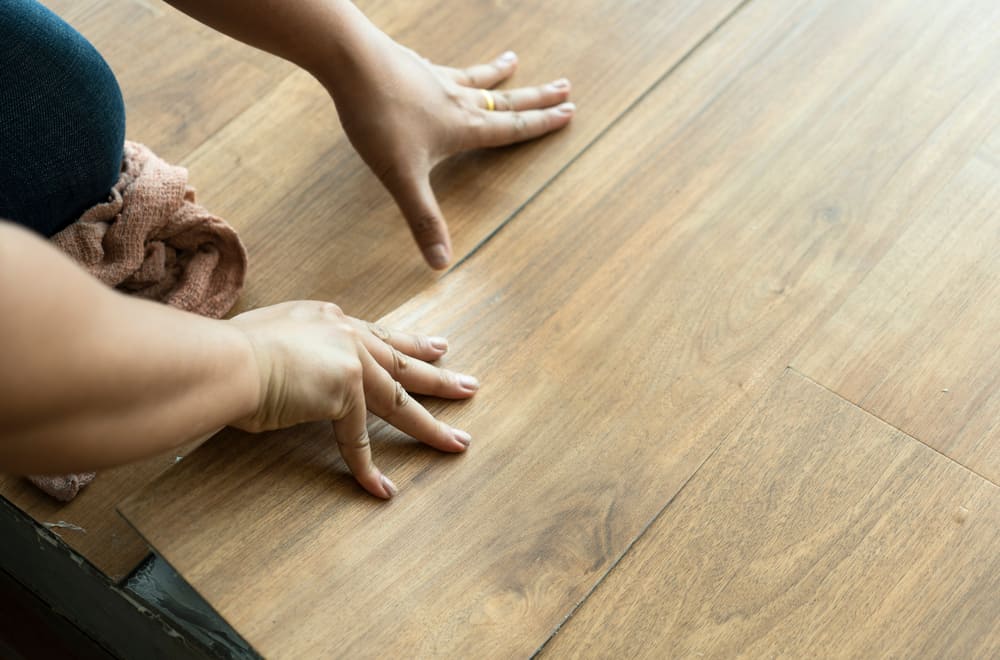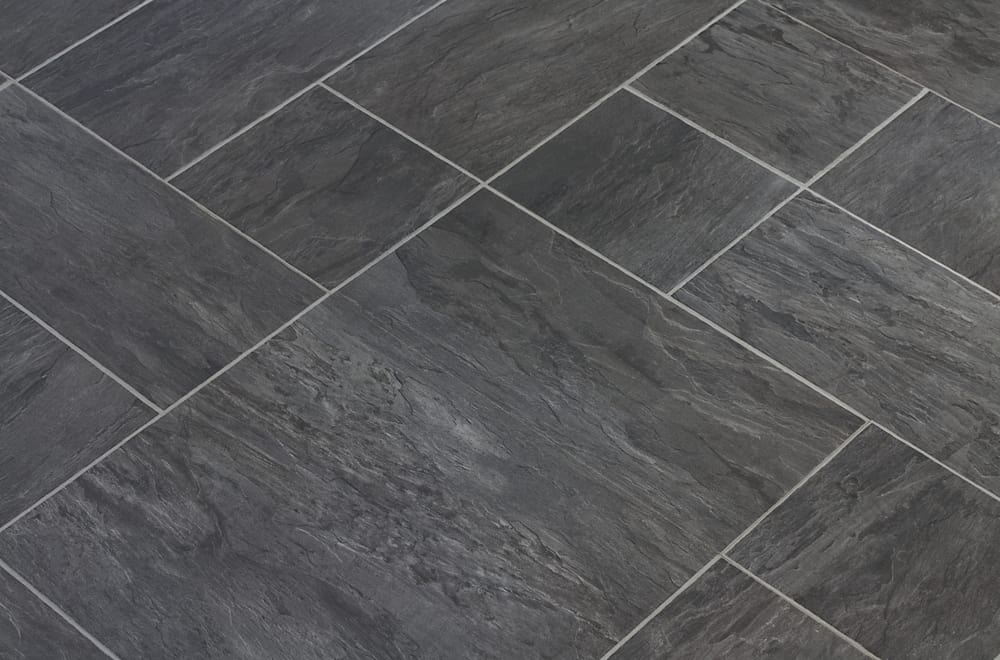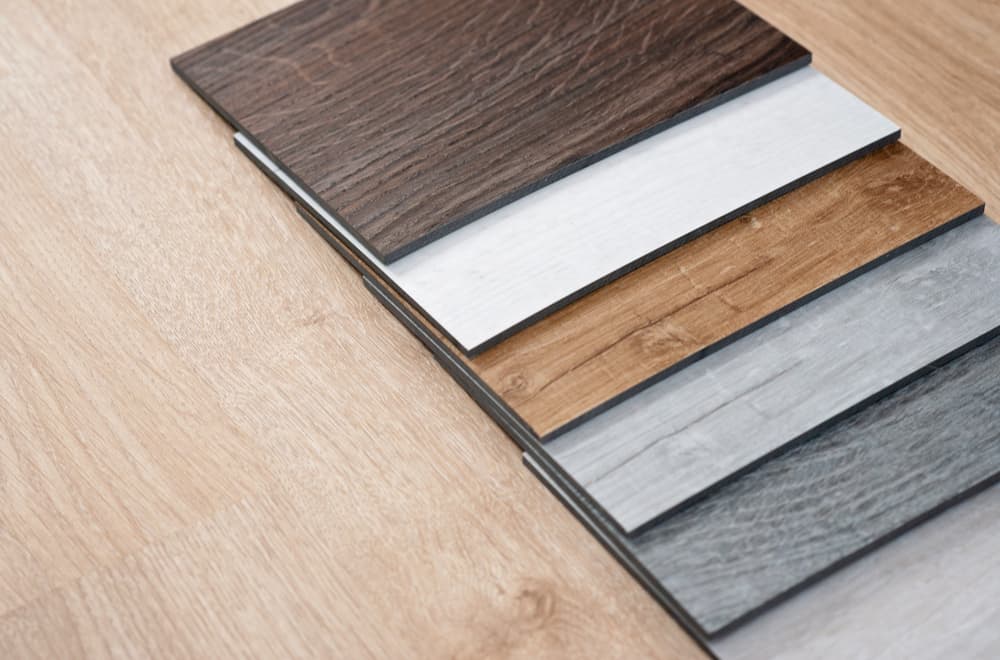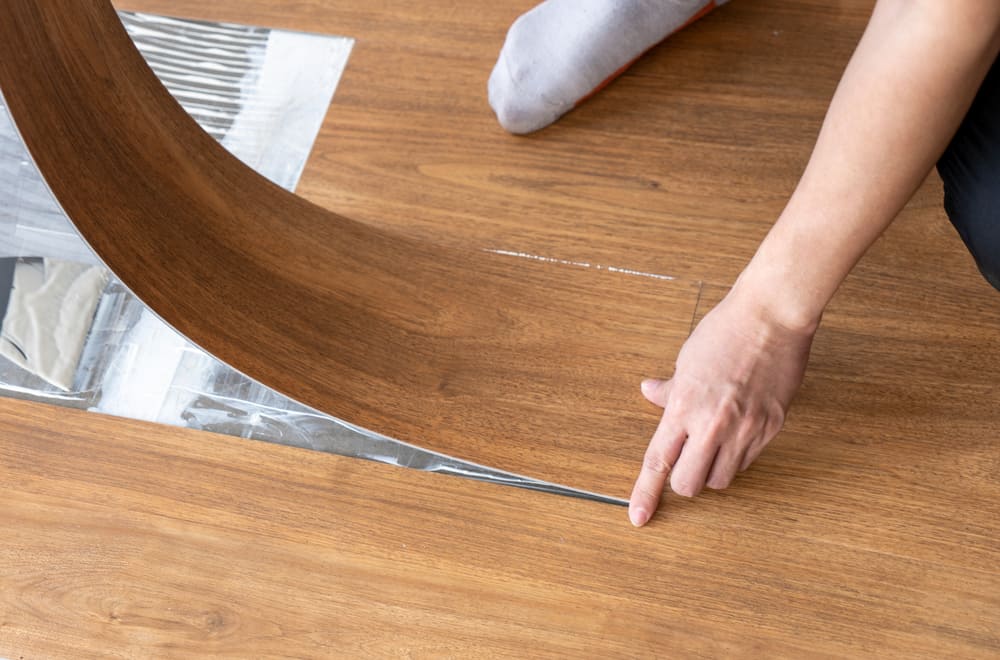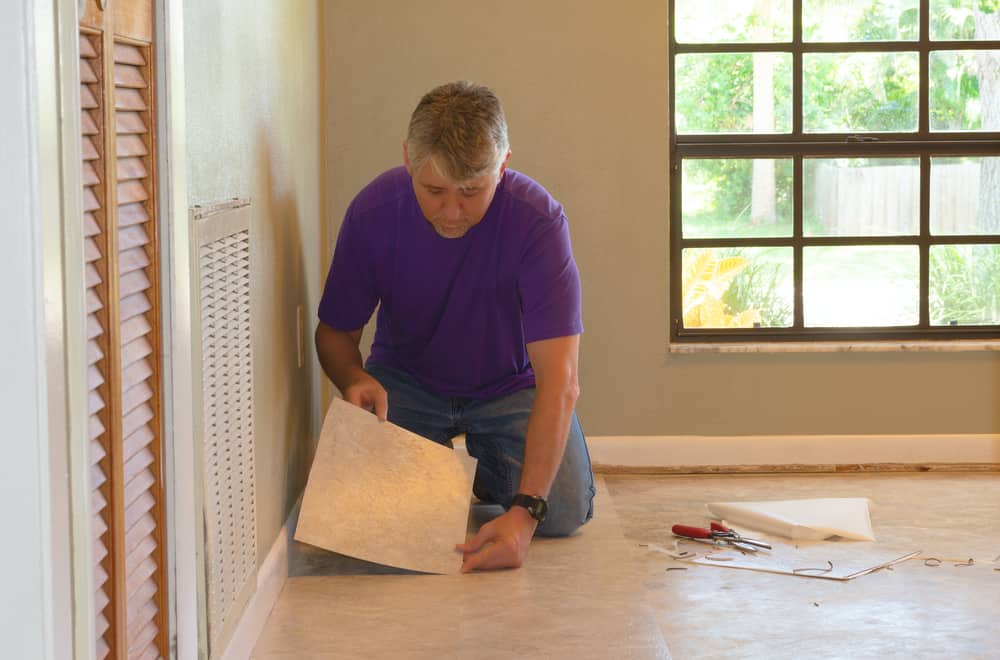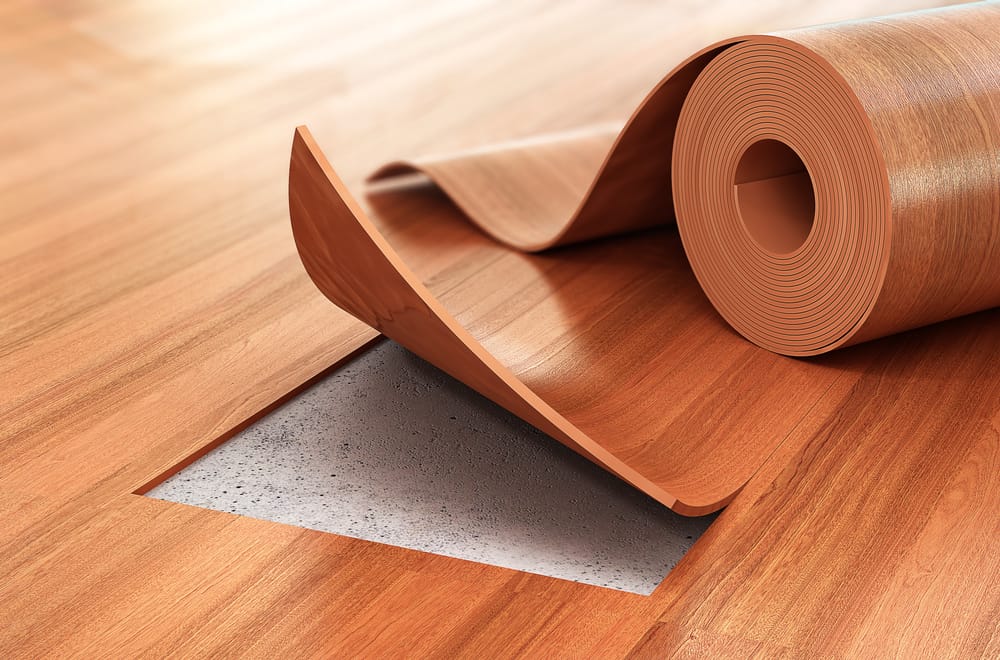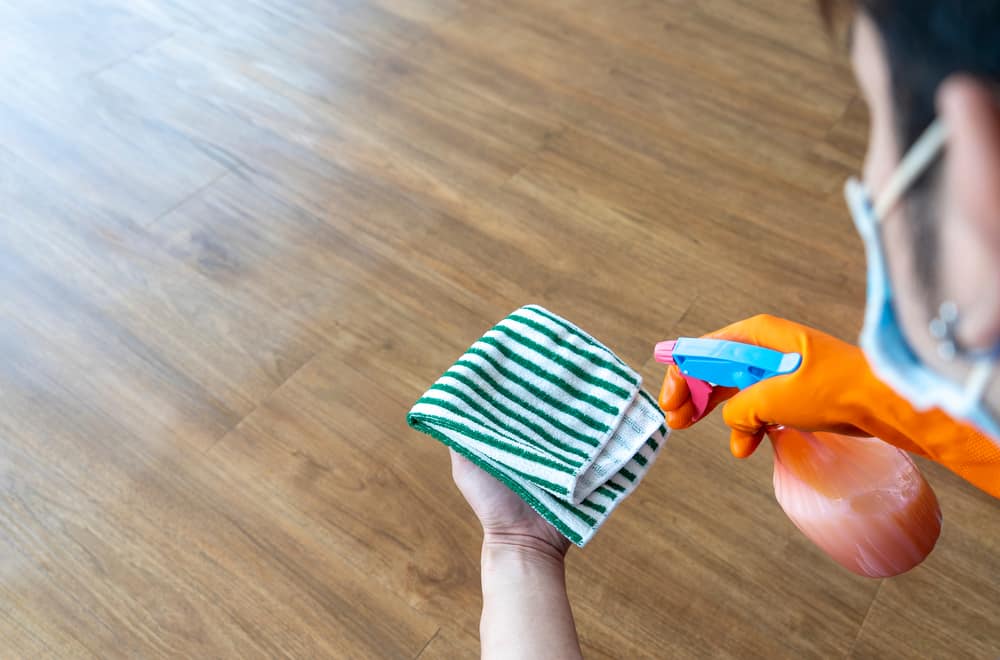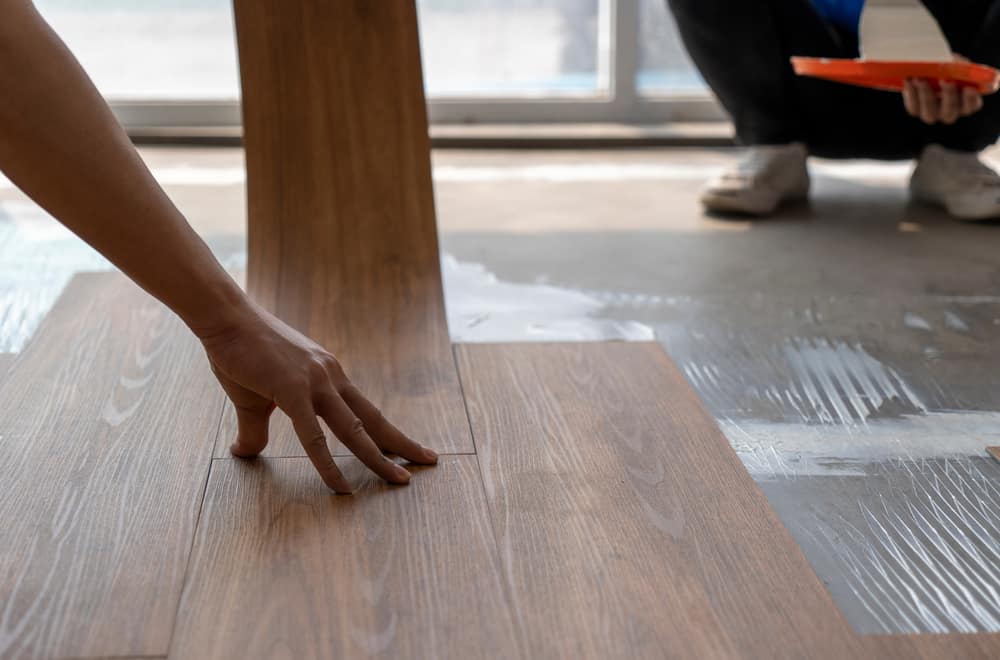Are you torn between sheet vinyl and vinyl tile flooring? These two products have been top contenders in the vinyl flooring scene for many years before newer products such as luxury vinyl tiles and luxury vinyl planks came to the market. Sheet and tile vinyl share many similarities, but they are also different products.
I wrote this comprehensive guide to help you compare sheet vinyl vs. vinyl tile flooring. In the end, you will make an informed decision on the flooring product that best suits your needs. So without further ado, let’s get started!
Table of Contents
What is Sheet Vinyl?
Sheet vinyl is a low-cost flooring product sold in large six or 12-foot rolls, cut to the customer’s specifications when you want to install the sheets.
The sheet consists of a PVC core sandwiched between a bottom and top layer, which features a printed design, and is protected by a transparent wear layer. The bottom layer is typically made of a soft, cushiony material such as fiberglass or felt.
What Is Vinyl Tile Flooring?
Vinyl tile is similar to sheet vinyl. Yes, they are the same product and consist of similar materials. So what is the difference between sheet vinyl vs. vinyl tile flooring? The only difference is vinyl tile comes in individual square tiles or planks that can be grouted, while sheet vinyl comes in the form of a wide roll that can be cut to your specified size.
Both vinyl tile and sheet vinyl are thin compared to other vinyl flooring options, such as luxury vinyl tiles(LVT) and luxury vinyl planks (LVP). Sheet and tile vinyl can be as thin as 1/16 inch, while luxury vinyl tiles and planks are available in thicknesses of up to 1/3 inch.
Vinyl tile and sheet vinyl closely resemble each other. But there are some differences between the two products. In this guide, we will compare sheet vinyl vs vinyl tile flooring based on the following criteria:
- Appearance
- Longevity
- Water Resistance
- Installation difficulty and costs
- Care and maintenance
- Comfort
- Resale Value
Sheet Vinyl vs. Vinyl Tile Flooring
1. Appearance
Sheet vinyl and vinyl tiles are available in many design options. Both come in styles, patterns, and textures that mimic natural materials such as wood, stone, and ceramic. Sheet vinyl is sold in big rolls, often measuring 6 to 12 foot and can be cut to the size of the room you want to install the flooring product. Sheet vinyl is installed like one big carpet, often with little to no cutting required. This will give your floor a smooth, seamless look.
Vinyl tiles more closely mimic ceramic or stone tiles, as they are installed individually and can be grouted. With vinyl tiles, your floors will have a polished, high-end look at a fraction of the cost of ceramic or stone tiles. Vinyl tiles typically come in 9-inch square pieces, but larger ones measuring up to 18 inches are available.
Best choice for appearance: Both
Vinyl tile and sheet vinyl are very similar in their appearance. Whether you want your floors to mimic hardwood, natural stone, or ceramic tile, you can achieve your preferred look using either of the two products.
2. Longevity
When you invest in flooring, you want a product that will serve you for many years. With the right care and maintenance, vinyl flooring can serve you for more than ten years.
Both sheet vinyl and vinyl tile stand up well to wear and tear and general household abuse. Because it is seamless, sheet vinyl is less prone to tearing and lifting at the seams. When installed in less busy areas, sheet vinyl can last for up to 20 years or more.
Vinyl tile is also hardwearing and can give you service for ten years or more. In busy spots, tiles may sometimes come apart, but you can easily replace a damaged tile, leaving your floor looking as good as new.
Best choice for longevity: Sheet vinyl
Vinyl tile and sheet vinyl both have a long lifespan. But, due to its seamless nature, sheet vinyl may serve you for longer as it is less prone to lifting along the seams compared to vinyl tile.
3. Water Resistance
A floor’s ability to stand up to moisture is a crucial consideration. Water damage is not only inconvenient; it can also be costly to repair and will affect your home’s resale value.
Vinyl tile and sheets are made of water-resistant materials. The top wear layer and PVC core are impermissible to water, making both flooring products excellent options for water-prone areas such as the kitchen, bathroom, and mudroom.
That said, the seams between individual vinyl tiles can let in water, exposing your floors to potential water damage, mildew, and mold. This rarely happens, but it is possible if the tiles are not installed properly or the flooring is aged or damaged. Vinyl sheets are laid down in whole pieces with no seams and therefore don’t usually have this problem.
Best choice for water resistance: Sheet vinyl
Both sheet and tile will stand up well to water, but you need to be more careful with vinyl tiles. Professional installation can prevent weak seams. If you notice a damaged tile or weak spot in the flooring, have it repaired immediately to avoid bigger problems in the future.
4. Installation Difficulty
Sheet vinyl and vinyl tile flooring use a glue-down installation method. An adhesive is applied across the subfloor, and the flooring product is laid and pressed down to form a strong bond between the vinyl and subfloor. Some vinyl tiles come with a stick-and-peel backing, but these tend to be of a lower quality than the glue-down variety.
Because they come in large sheets, sheet vinyl can be particularly cumbersome for an ordinary DIYer to install. On the other hand, vinyl tiles are more manageable as they come in individual pieces. Once you draw the grid lines on the floor and apply the adhesive, you can lay down the tiles fast with basic DIY skills.
Best choice for installation: Vinyl tile
In most areas, professional installation of sheet vinyl flooring is inexpensive. If you really must install sheet vinyl, you will save time and effort paying a pro to install the product for you.
5. Cost
Vinyl sheet and tile are economy flooring options. If you are on a budget but still need hardwearing and good-looking flooring solutions, both are a good choice. Luxury vinyl tiles are significantly more expensive than standard vinyl flooring.
Sheet vinyl, which is easily produced in large quantities, typically costs between $0.5 and $1.5 per square foot. In comparison, you will pay between $1.5 and $3 for each piece of vinyl tile.
Best choice for cost: Sheet vinyl
Sheet vinyl is budget-friendly, but you should factor in the cost of hiring a professional installer. Unless you have advanced DIY skills, your best option is to hire a pro to get the job done.
6. Care and Maintenance
Vinyl flooring is generally easy to clean, even in homes with pets and children. Both sheet vinyl and vinyl tile have a shiny topcoat that keeps the floor looking attractive even after years of use.
The best part is you don’t need to wax or apply any topcoat to your floors. Depending on how busy your household is, all that is required is daily vacuuming and the occasional wet mopping. I recommend mopping at least once every month and vacuuming daily for squeaky clean vinyl floors.
Use mild cleaning solutions to mop your floors; harsh chemicals can strip the upper wear layer, exposing the flooring to dirt, moisture, scratches, and stains. Always remove the beater bar from your vacuum cleaner before vacuuming vinyl to avoid scratching the floor.
Best choice for care and maintenance: Both
Vinyl sheet and tile are low maintenance, one of the reasons why they are popular flooring solutions. If you have a busy family, you will find either of these two floors a breeze to maintain.
7. Comfort
Conventional floors such as hardwood, ceramic, and natural stone can be quite hard and cold underfoot. These are not the best qualities, especially if you live in a cold region.
On the other hand, vinyl is a much warmer material, and if you prefer, you can install it over a heated subfloor (water-based). That said, vinyl flooring can feel hard underfoot, especially when installed on a concrete subfloor.
Best choice for comfort: Both
Vinyl tile and sheet vinyl are made of the same material, and their performance is similar. Neither offers superior comfort than the other—both feel quite the same underfoot.
Bottom Line: Sheet Vinyl Vs. Vinyl Tile
If you are in the market for an affordable but durable flooring solution, standard vinyl products such as sheet vinyl and vinyl tile will be the top contenders. At a rate of $0.5 to $3 per square foot, you can install great-looking floors that mimic hardwood, ceramic tiles, or natural stone at a fraction of the cost.
As we’ve seen, there isn’t much of a difference when comparing sheet vinyl vs. vinyl tile. Both offer the same comfort level, have similar maintenance requirements, and can serve you for years at a time.
That said, sheet vinyl is a better choice for moisture-prone areas and is cheaper than vinyl tile. Vinyl tile is, however, easier to install and offers a more realistic appearance if you are after the look of ceramic tiles or natural hardwood floors.
